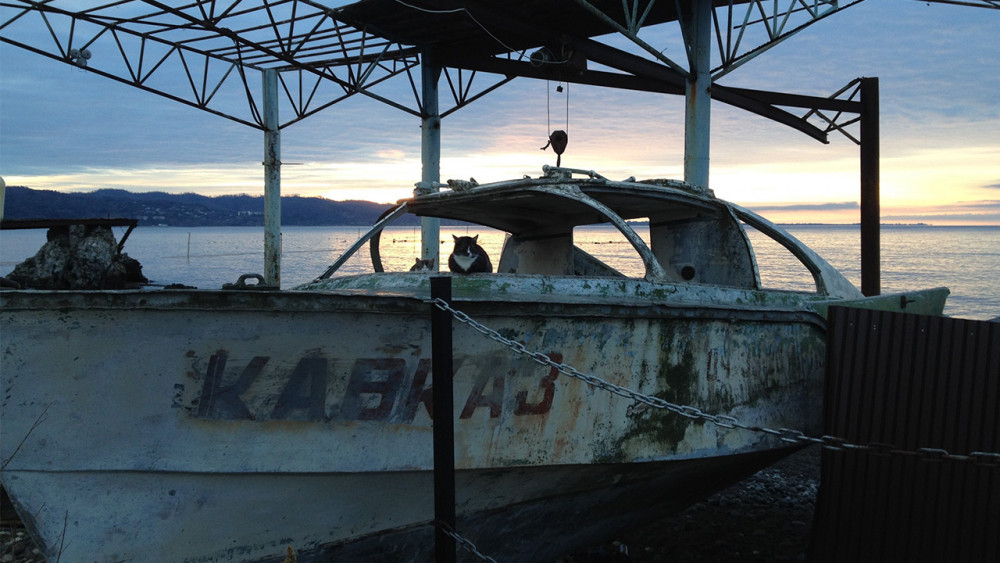
Conciliation Resources has been facilitating dialogue among Georgians and Abkhaz for almost twenty years – bringing together officials, experts and civil society from either side of the conflict divide. Despite a lack of progress in official talks, this dialogue is successfully building trust, identifying areas of common interest and creating an environment more conducive to peace. Recently, discussions as part of the Limehouse Discussion Platform (or LP dialogue), as the informal dialogue is known, have achieved concrete results on the topic of education – helping to improve the lives of those living with the conflict.
Georgian dialogue participant, Margarita Akhvlediani, has been involved in the dialogue for a number of years:
The dialogue is important because it provides a lot of information about each other, there are a lot of problems because people don't know each other – they don't know the facts and perspectives that are known to the other side. The dialogue creates a platform for honest exchange and only on such a platform can we build stable peace in the future.
Addressing specific issues
The discussions as part of this forum generate new ideas for peacebuilding, create opportunities for progress on concrete areas of mutual interest and enable more constructive narratives to be built. By focusing on the less-contentious areas, this platform is enabling very practical steps to be taken on specific issues. Armin Rieser, OSCE Task Force Chair, Swiss Federal Department of Foreign Affairs - and part of the negotiating team for the official Geneva talks explains:
Conflict always has many layers and issues. If you want to address the problems, you need communications between the people involved or close to the conflict. People need to hear each other’s voice and find ways to make progress. This format, informal dialogue, does that…We cannot expect to completely solve the conflict through such meetings but we can raise issues and address specific problems...A process like this outside of the official political sphere has a better chance of addressing issues without being caught up in core conflict ‘status’ discussions.
On the topic of education, as a result of these discussions and production of a related publication, we have enabled greater access to education for young university students from Abkhazia – supporting Abkhaz State University to raise standards and enabling students to participate in study and exchanges overseas in different European countries. Currently, youth in Abkhazia suffer from increased isolation and find it difficult to study abroad. Many people believe addressing the de-isolation of Abkhazia is essential to fostering long-term peace. As Liana Kvarchelia, an Abkhaz participant from Sukhum/i clarifies:
At this point in the process we want to have concrete achievements, concrete results. One such result for instance, is the opening up of opportunities to higher education abroad for Abkhaz students…Through tangible, small steps we are gradually expanding these opportunities and ultimately it helps to build more confidence between the societies that are in conflict.
International perspectives
As well as participants from the region, some of the conversations also include international experts, for example from Germany, the UK, Switzerland or Russia – bringing additional support and fresh perspectives to the process. The meetings enable the different participants to identify areas for cooperation. As Astamur Tania, a dialogue participant from Sukhum/i elaborates:
These meetings are an opportunity to explore the positions of the Georgians, Abkhaz and international actors and then identify some areas for collaboration…We understand how narrow the political context is, we shouldn’t expect any political breakthroughs, but there are areas of engagement which we can explore. Each step improves confidence between the sides.
This dialogue process and the formal peace negotiations are separate, yet having an overview of the discourse from both sets of discussions provides a better overall sense of the conflict dynamics. As Björn Kühne, Head of the Office of the EU Special Representative for the South Caucasus and the Crisis in Georgia, and participant in both the official peace talks and the Limehouse Discussion Platform states:
These informal dialogue processes are essential but are in short supply – there are very few initiatives that bring Georgians and Abkhaz together like this, this is the one long-standing process which exists…I personally very much appreciate the opportunity of taking part in these informal dialogue sessions. This allows for deeper understanding of the positions, obstacles and overall dynamics.
Building trust
The Limehouse Discussion Platform is also important in building relationships between people from either side of the conflict divide, facilitating rare direct contact between Georgians and Abkhaz. Simon Janashia, an education specialist based in Tbilisi and participant in the latest dialogue meeting comments:
It’s important that people meet with each other and have a structure to talk about the issues they feel are important, and cooperation in general… Dialogue such as this provides a good starting point, it gives the possibility to build contacts, share information and plan for the future. It’s not about talking to lessen tensions, but talking about the problems and possible shared solutions as a way of people eventually getting to know each other and building trust with one another.

